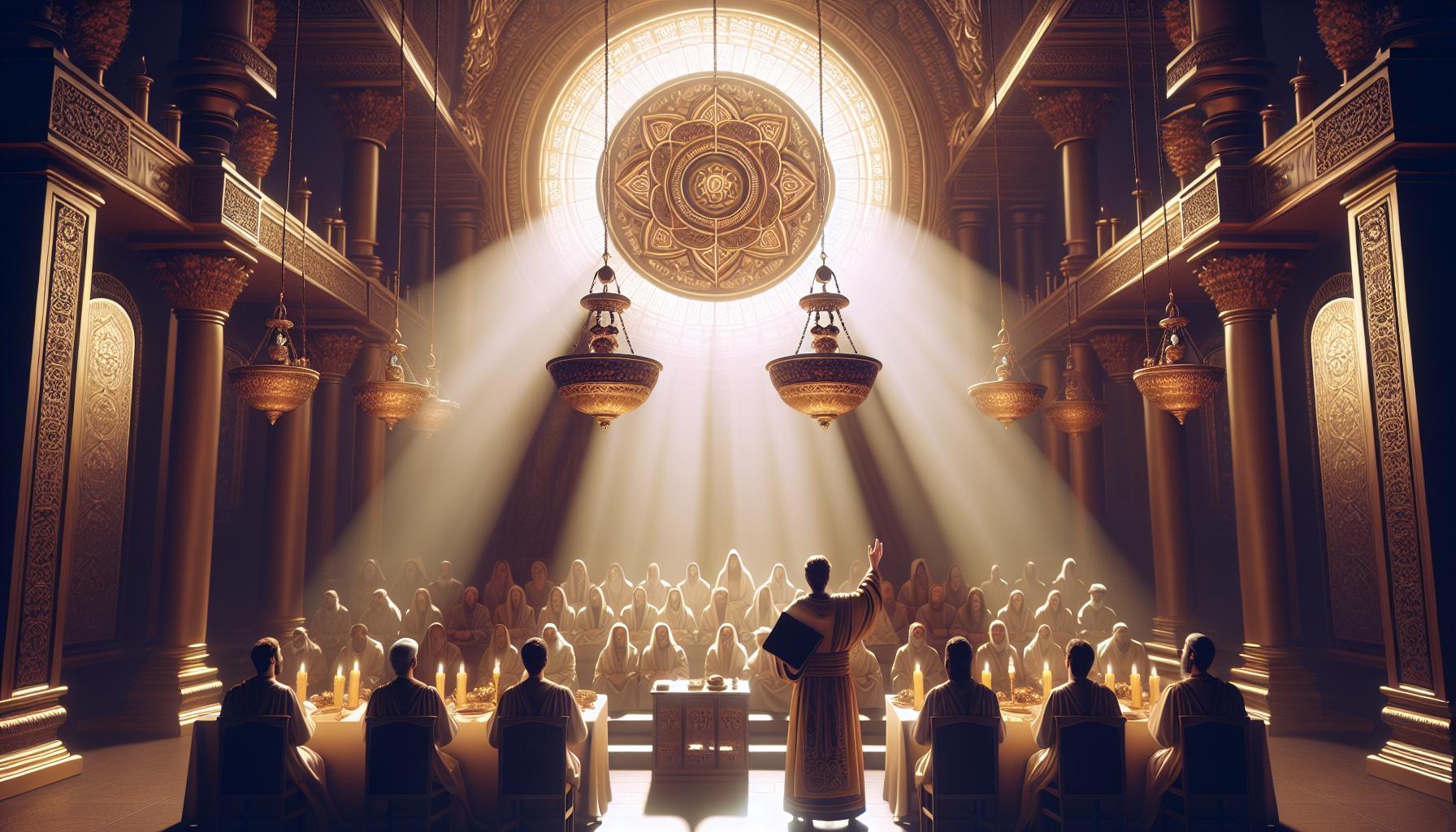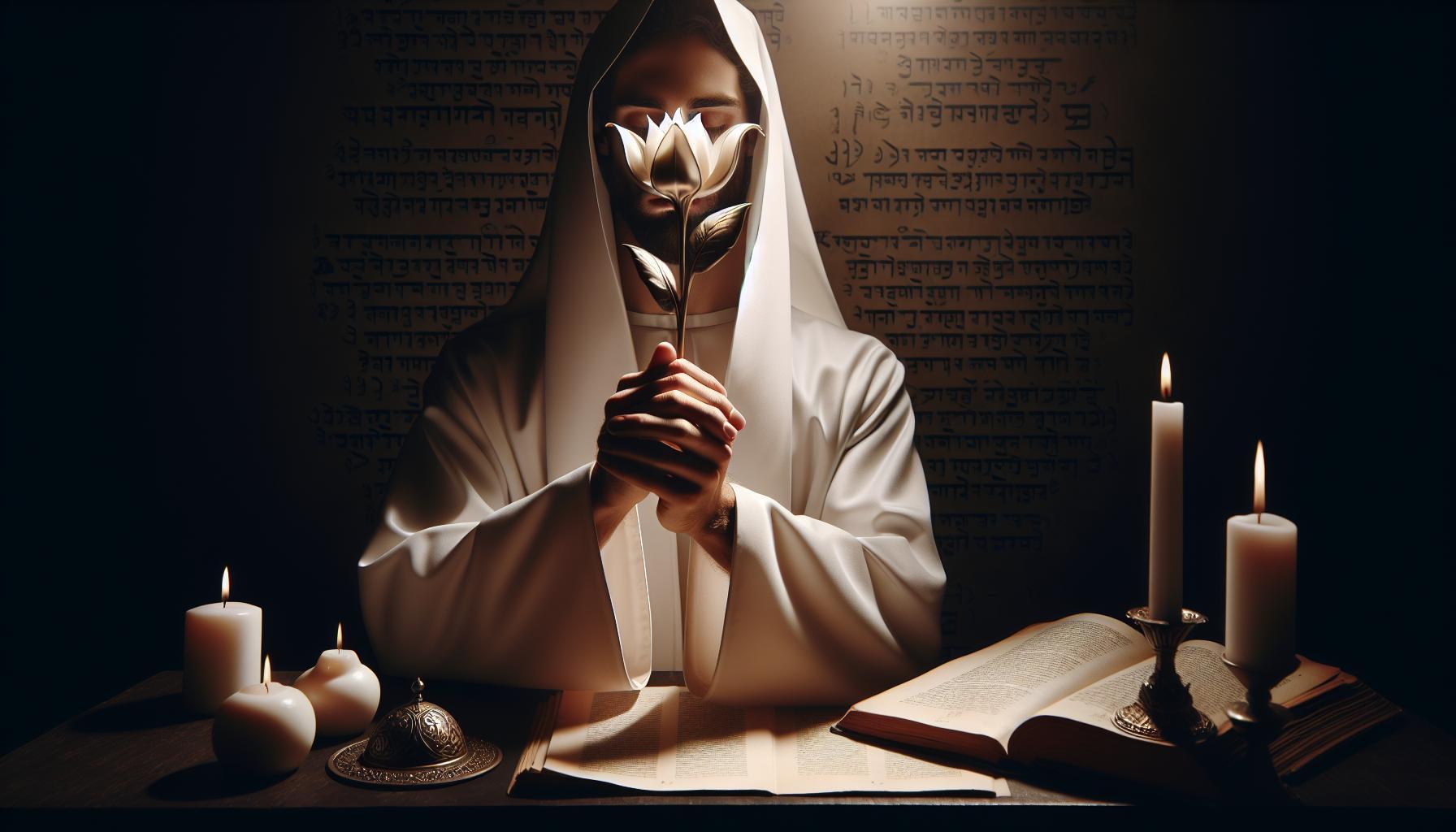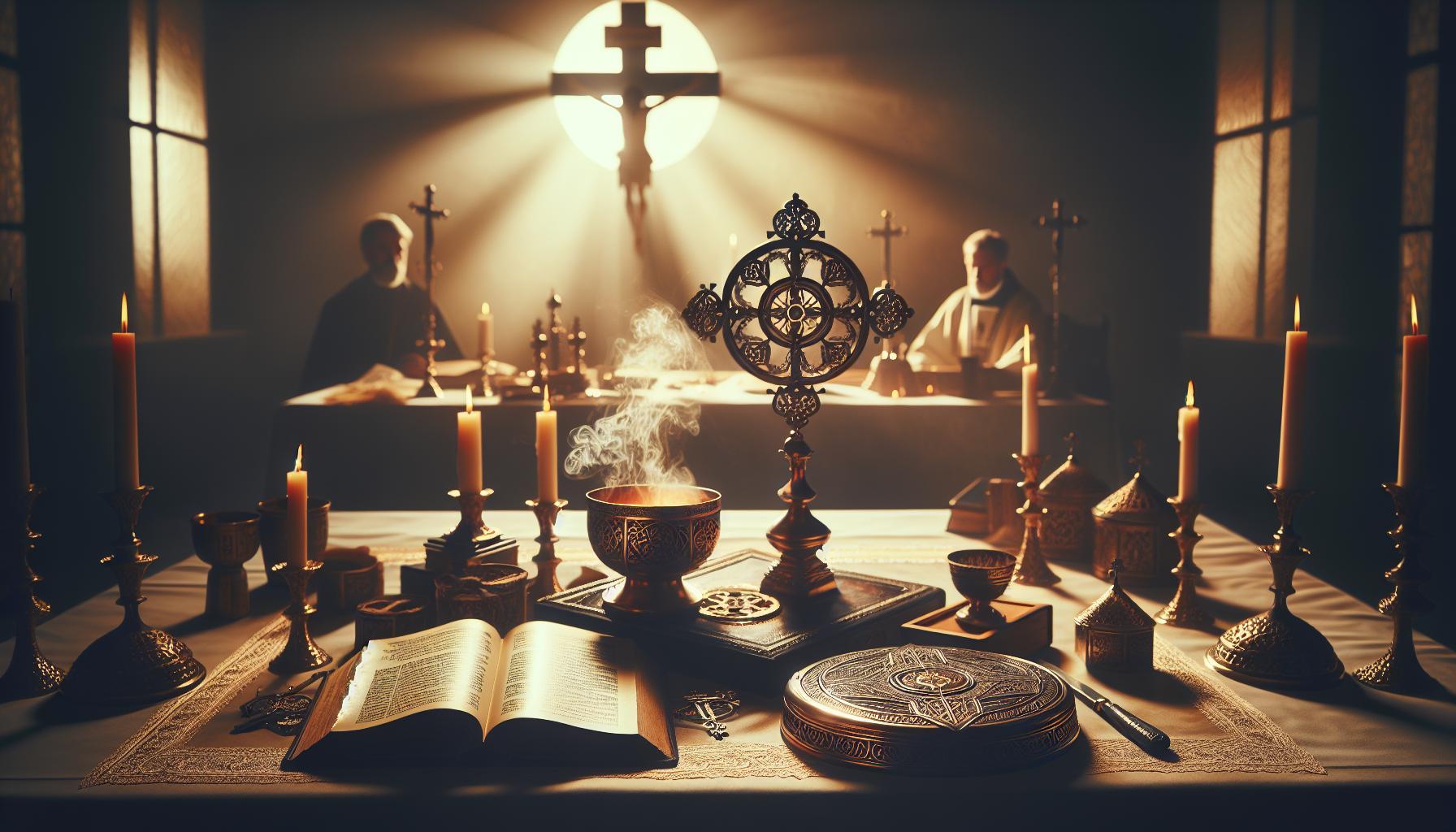In a world where relationships can be complex and forgiveness is often sought, the question of whether a preacher can marry a divorced woman stirs significant debate. Understanding the beliefs and practices surrounding this issue is crucial, as it reflects deeper theological interpretations and impacts the lives of many seeking love and acceptance within their faith communities.
Understanding the Theological Perspectives on Divorce and Remarriage

Many people might be surprised to learn that the question of a preacher marrying a divorced woman evokes a diverse array of theological perspectives across various denominations. This inquiry touches the heart of intricate beliefs about marriage, divorce, and the nature of redemption. Understanding the theological underpinnings surrounding these issues requires a nuanced approach, as interpretations can vary dramatically, illuminating both the scriptures and cultural traditions that influence pastoral decisions.
The Scriptural Context
In examining the theological perspectives on divorce and remarriage, various scriptures come into play, each providing a different lens through which to interpret Christian beliefs. Key passages often referenced include:
- Matthew 19:9 – Jesus discusses the allowance of divorce in cases of marital unfaithfulness.
- 1 Corinthians 7:15 – Paul addresses abandonment, suggesting that a believer may remarry under certain circumstances.
- Deuteronomy 24:1-4 – The Old Testament law provides guidelines for divorce, which inform later theological discussions.
These scriptural references underline the complexity around the teachings of divorce and remarriage, suggesting that circumstances greatly influence theological interpretations. In some denominations, the focus on grace and forgiveness opens doors for divorced individuals to remarry without stigma, while in others, divorce remains a significant moral failure that complicates remarriage, particularly for those in spiritual leadership roles.
Denominational Variations
The beliefs and practices surrounding whether a preacher can marry a divorced woman vary widely among denominations. The following table summarizes a few theological positions from different branches of Christianity:
| Denomination | Position on Preacher Marrying a Divorced Woman |
|---|---|
| Roman Catholic | Divorce is not recognized; annulments are necessary before remarriage. |
| Protestant (e.g., Baptist) | Circumstances of divorce matter; often allow for remarriage in cases of infidelity or abandonment. |
| Orthodox Christian | Supportive of remarriage but views second marriages with a sense of penitence; usually allows for divorces under certain conditions. |
| Evangelical | Emphasizes the grace of God; mostly permissive regarding remarriage, focusing on healing and restoration. |
As evidenced, denominational doctrine significantly shapes opinions on the acceptability of remarriage for preachers following a divorce. This variance often leads to deep discussions and, at times, controversy within congregations, as believers seek to align their actions with their understanding of scripture and their church’s teachings.
Communal and Pastoral Considerations
Beyond theological tenets, one must also consider the communal and pastoral implications of a preacher marrying a divorced woman. Many churches prioritize the well-being of their congregants and may adopt a more compassionate stance, promoting healing over judgment. For instance, a pastor might consider factors like the cause of the divorce and evidence of personal growth or reconciliation when determining the appropriateness of marrying a divorced woman.
In practical terms, engaging in pastoral care, providing counseling, and encouraging open discussions are critical steps for ministers navigating these complex waters. By fostering a grace-filled environment, churches can help their members embrace healing while adhering to their faith’s core tenets. Through understanding differing theological perspectives, congregations can create a more harmonious space for discussing difficult topics surrounding divorce and remarriage, ultimately guiding individuals to find grace and direction in their personal journeys.
The Role of Scripture in Guiding Marital Decisions

In the complex landscape of marital decisions, scripture often serves as a beacon, illuminating the path for those navigating matters of love, commitment, and relationships. This is particularly poignant in discussions about divorce and remarriage, especially when considering the role of religious leaders, such as preachers, in officiating weddings for divorced individuals. Throughout centuries, various religious texts have been scrutinized for their guidance on these sensitive topics, with interpretations varying widely across denominations and cultural contexts.
Interpretative Frameworks
The Bible, for example, presents diverse instructions regarding marriage and divorce. In the New Testament, Jesus addresses the subject in the Gospels, emphasizing the sanctity of marriage while acknowledging human frailty. Key passages often cited include:
- Matthew 19:3-9 — Emphasizing the indissoluble nature of marriage.
- 1 Corinthians 7:10-15 — Providing guidance for believers in mixed-faith marriages and highlighting circumstances under which divorce may occur.
These scriptures form the foundation of many pastoral teachings regarding the issue of whether a preacher can marry a divorced woman. For many congregations, such interpretations directly influence the decisions made by clergy members. Preachers must carefully balance scriptural adherence with the need for compassion and understanding of individual circumstances.
Practical Considerations for Church Leadership
For religious leaders faced with the question, “Can a preacher marry a divorced woman? Beliefs and practices,” it can be beneficial to establish a clear policy that aligns with their theological beliefs while addressing the realities of congregants’ lives. A thoughtful process may include:
- Biblical Study: Engage with scripture collectively, examining the context and intent of passages related to marriage and divorce.
- Counseling Sessions: Offer pre-marital counseling to couples, providing a space to explore their relationship dynamics and individual histories.
- Community Conversations: Facilitate discussions within the faith community to navigate differing opinions and create a culture of understanding.
By intentionally grounded in scripture, leaders can foster an environment that not only articulates doctrinal beliefs but also embodies grace and acceptance.
Conclusion: Navigating Complex Decisions
As clergy and congregations engage with the question of marrying divorced individuals, they must strike a balance between fidelity to scriptural texts and pastoral sensitivity. By applying the teachings of scripture with care and embracing a holistic view of relationships, faith communities can navigate these decisions in a manner that honors both tradition and the complexities of modern life. In doing so, they are empowered to provide meaningful guidance to couples seeking to embark on new chapters of their lives, further nurturing the sanctity of marriage within their congregations.
Differing Denominational Views on Preachers Marrying Divorced Individuals
In many religious communities, the question of whether a preacher can marry a divorced woman sparks intense debate and diverse opinions. The varying perspectives not only reflect theological beliefs but also cultural values and historical contexts. Understanding these differing denominational views reveals how the approach to marriage, divorce, and pastoral authority can significantly shape a preacher’s personal and ministerial life.
Views Across Denominations
Certain denominations uphold strict doctrines regarding divorce and remarriage, while others adopt a more lenient stance driven by pastoral compassion and social realities. Here are some notable perspectives:
- Conservative Evangelical Denominations: Many conservative evangelical groups maintain that preachers should not marry divorced individuals unless the divorce was on the grounds of marital infidelity. They often cite biblical passages such as Matthew 19:9 to support their view, which states that remarriage after divorce constitutes adultery, creating a significant barrier for pastoral candidates with a history of divorce.
- Mainline Protestant Churches: In contrast, mainline Protestant denominations like the United Methodist Church or the Episcopal Church tend to adopt a more compassionate outlook. They may permit preachers to marry divorced individuals after evaluating specific circumstances, prioritizing the idea of redemption and pastoral care. Many believe that a person’s past does not wholly define their ability to lead a congregation.
- Roman Catholic Church: In Catholicism, the sacrament of marriage is indissoluble, and divorced individuals cannot remarry without an annulment, which is a complex process. Consequently, Catholic priests are generally not allowed to marry divorced women unless those women have received an annulment from the Church, indicating the marriage was invalid from the start.
- Progressive and Inclusive Faith Communities: Some progressive denominations take a radical approach, arguing that love and partnership should be celebrated without the constraints of past relationships. These groups often prioritize the wellbeing of individuals, encouraging their ministers to marry divorced individuals as part of a broader commitment to acceptance and inclusivity.
Common Grounds and Practical Considerations
Despite these differing views, common grounds often exist, especially regarding support for individuals seeking remarriage. Many denominations emphasize the importance of discernment and spiritual guidance in these situations:
| Denomination | Stance on Preachers Marrying Divorced Women | Key Considerations |
|---|---|---|
| Conservative Evangelical | Generally opposed | Biblical grounds for divorce must be met. |
| Mainline Protestant | Permissive with conditions | Focus on individual circumstances and counsel. |
| Roman Catholic | Restrictive | Need for annulment; cannot remarry otherwise. |
| Progressive Faith Communities | Supportive | Emphasize love and acceptance. |
Ultimately, navigating the question of whether a preacher can marry a divorced woman is more than a matter of doctrine; it reflects the evolving attitudes within various communities about marriage, forgiveness, and the role of spiritual leaders. As congregations become more diverse and reflective of wider society, these discussions will likely continue to develop, shaping the lives of preachers and their communities alike.
Practical Considerations for Preachers and Divorced Women
The question of whether a preacher can marry a divorced woman touches on deep theological beliefs, denominational practices, and the personal journey of faith for both parties involved. Understanding the diverse landscapes of beliefs and practices can empower both preachers and divorced women as they navigate these waters. It’s essential to take a practical approach, focusing on healing, understanding, and purposeful engagement within the community.
Understanding Denominational Stances
One of the first steps for preachers and divorced women is to familiarize themselves with the specific doctrines and beliefs of their denomination. Each religious group—from conservative to liberal—has different perspectives on remarriage after divorce. Here are some common stances:
- Conservative Traditions: Many conservative denominations strictly view divorce as a significant moral failing, often requiring extensive counseling before considering remarriage.
- Mainstream Churches: Some mainstream denominations offer more flexibility, allowing remarriage under certain circumstances, such as abandonment, abuse, or infidelity.
- Progressive Communities: Many progressive communities embrace a broader interpretation of Scripture, often supporting the idea that love and commitment can be renewed, regardless of past marital status.
Familiarizing oneself with the specifics of their religious context can help both parties feel more secure in their choices.
Engaging in Honest Conversations
Open dialogue is paramount in navigating the complexities of marrying a divorced woman. Here are some steps to consider:
- Seek Guidance: Preachers should consult their church leadership, mentors, or a trusted theological advisor to clarify the official stance and seek personal guidance.
- Share Stories: For divorced women, sharing personal stories and experiences can foster a deeper understanding of each individual’s past struggles and future aspirations.
- Conduct Joint Counseling: Engaging in premarital counseling together can be invaluable. This practice helps address potential issues, both from religious beliefs and personal histories.
Such conversations are crucial not only for clarity but also for reinforcing mutual respect and understanding.
Fostering Community Support
Building a supportive community can make the journey smoother. Finding a church that embraces couples with diverse backgrounds is essential. Below are practical ways to cultivate that support:
- Participate in Mixed Group Events: Engaging in small groups that welcome various backgrounds can help congregants, and especially divorced individuals, feel included and supported.
- Organize Learning Sessions: Churches can host sessions on topics related to divorce, healing, and remarriage to educate members and promote healing discussions.
- Encourage Testimonies: Sharing personal journeys within the church can destigmatize the issue of divorce and help others understand that they are not alone in their experiences.
Community involvement fosters connections and support networks that are instrumental in healing and acceptance.
By focusing on these practical considerations, preachers and divorced women can navigate their journey with faith, understanding, and empowered choices. Each step taken with clarity and consideration will contribute to a more open and loving community as they explore the question: “Can a preacher marry a divorced woman?”
Navigating Church Policies and Personal Beliefs
Understanding the delicate relationship between church policies and personal beliefs is crucial, especially when navigating complex questions like whether a preacher can marry a divorced woman. Many faith communities have specific guidelines rooted in scripture and tradition, while individual beliefs can significantly impact how these guidelines are interpreted and enacted. Engaging with both the policy and one’s personal convictions can often lead to a deeper understanding of faith and human relationships.
Exploring Church Policies
Different denominations have varying stances on divorce and remarriage, reflective of their theological interpretation and traditions. For instance, while some churches may strictly prohibit remarriage after divorce, others adopt a more lenient approach, viewing second marriages as an opportunity for healing and restoration. To navigate these policies effectively, especially if you are a preacher or contemplating marrying a divorced individual, here are some essential steps to consider:
- Research Doctrinal Beliefs: Consult the teachings of your denomination regarding divorce and remarriage. Understand their historical context and how they align with broader theological principles.
- Engage in Dialogue: Open a conversation with church leaders or a theologian within your community to gain insights into how these policies are applied in practice.
- Reflect on Personal Values: Assess how these policies resonate with your values and beliefs. It is important to ensure that personal conviction aligns with ecclesiastical guidelines.
Reconciling Personal Beliefs with Institutional Policies
As a preacher, the question of remarriage, especially in the context of divorce, can evoke a conflict between religious policy and personal faith. Many preachers find themselves at the intersection of doctrine and pastoral care, wherein a rigid adherence to rules could be counterproductive to compassion and understanding. Consider these approaches to harmonize personal beliefs with church policies:
- Seek Guidance: Engaging with mentors or spiritual advisors can provide clarity and wisdom, assisting in unpacking the intricacies of marrying a divorced woman.
- Community Engagement: Foster discussions within your congregation on this topic. Hearing diverse perspectives can enlighten your decision-making process.
- Practice Empathy: Recognize the personal histories of individuals seeking to remarry. Understanding their journeys can inform your pastoral approach while respecting church doctrine.
An illustrative scenario could involve a preacher contemplating marrying a divorced woman. By checking the context of their denomination’s teachings and actively engaging both scripture and congregational input, the preacher can create a responsible and heartfelt decision that honors their faith and pastoral role. Through thoughtful navigation of these complex waters, it is possible to bridge personal beliefs and church policies in a meaningful and respectful manner.
Compassionate Pastoral Care in the Context of Divorce
In the often tumultuous journey of divorce, individuals may find themselves yearning not only for emotional closure but also for spiritual guidance. Misconceptions abound regarding marriage practices in the context of divorce, particularly around the question, “Can a preacher marry a divorced woman?” It is imperative for pastoral care to embody compassion, understanding, and a firm grounding in faith to navigate the complexities that accompany this issue.
Understanding the Emotional Landscape
When a congregation member experiences divorce, it can evoke a multitude of feelings, including grief, guilt, and confusion. Pastoral care should embrace these emotions and provide a supportive environment where individuals can freely express their struggles. Acknowledging the pain and difficulty of divorce is essential. Here are some ways pastors can engage compassionately:
- Active Listening: Create a safe space for individuals to share their experiences without fear of judgment.
- Empathy: Recognize that each person’s journey through divorce is unique and requires a tailored approach.
- Encouragement: Offer words of support that reinforce the idea of personal growth and hope beyond divorce.
Building Relationships Through Scriptural Insights
For many, faith plays a pivotal role in navigating life’s toughest challenges, including divorce. Pastors should be well-versed in the scriptural context surrounding remarriage, as this can guide their counsel and the congregation’s understanding. Instead of focusing solely on doctrinal constraints, it’s vital to highlight the principles of love, forgiveness, and restoration found within biblical teachings.
A scriptural framework can facilitate discussions about potential future relationships, encouraging divorced individuals to reflect on their pasts while embracing the possibility of new beginnings. Recent studies indicate that approximately 60% of church-going divorcees seek pastoral guidance on remarriage, pointing to the necessity of informed dialogue around these sensitive topics.
Through these initiatives, theme-focused sermons, and community support, pastors can not only address the pressing question, “Can a preacher marry a divorced woman?” but also foster an environment of healing and hope that resonates deeply with those in need. In doing so, the church becomes a sanctuary for the broken-hearted, reflecting the loving and forgiving nature of faith in action.
Encouraging Open Dialogue Among Church Communities
In many church communities, discussions around sensitive topics like marriage and divorce can often lead to misunderstanding and division. Promoting an open dialogue is essential for fostering mutual respect and understanding among congregants, particularly regarding the question of whether a preacher can marry a divorced woman. Engaging with this subject not only helps clarify varying beliefs but also strengthens the bonds of community.
To begin encouraging discussions, church leaders can create safe spaces where members feel comfortable sharing their perspectives. This can be achieved through small group meetings, workshops, or even informal gatherings. During these dialogues, church members can explore the beliefs and practices surrounding divorce and remarriage. Here are some guidelines to ensure effective communication:
- Active Listening: Encourage participants to listen to each other without interrupting, focusing on understanding rather than responding immediately.
- Respectful Questioning: Promote a culture where asking questions is welcomed, helping to clarify misunderstandings and deepen the conversation.
- Inclusive Participation: Ensure everyone has the opportunity to voice their opinions, emphasizing that all viewpoints are valid and worthy of consideration.
Real-World Examples of Open Dialogue
Churches that have successfully implemented open dialogue initiatives have often reported increased unity and stronger relationships among members. For instance, a church in Texas began hosting monthly discussions on challenging topics, including the subject of remarriage after divorce. These sessions allowed members to share personal stories and theological beliefs, fostering a deeper understanding of the diversity within their congregation.
Additionally, resources such as guest speakers, educational materials, and even moderated panels can enhance these discussions. By incorporating theological experts or experienced counselors, church communities can gain diverse insights into the nuances of the topic. This not only helps clarify questions about whether a preacher can marry a divorced woman but also prepares congregants to support one another through the complexities of personal relationships.
Ultimately, fostering open dialogue around challenging issues like marriage and divorce enables church communities to navigate these sensitive topics with grace and compassion, contributing to a more inclusive and understanding congregation.
Building Relationships After Divorce: A Faith-Based Approach
Rebuilding relationships after a divorce can often feel like an insurmountable challenge, yet for many, it becomes a transformative journey. Faith-based approaches provide a framework not just for healing, but also for re-establishing meaningful connections with oneself and others. For individuals grappling with the question of whether a preacher can marry a divorced woman, the journey forward often involves navigating the complexities of relationship building with grace and intention.
Understanding Forgiveness and Healing
The foundation of any healthy relationship post-divorce begins with the concepts of forgiveness and healing. As you embark on the journey of forming new connections, consider the following approaches:
- Self-Reflection: Take time to reflect on your past experiences, identifying any unresolved feelings that may hinder your ability to move forward.
- Seeking Guidance: Engage with spiritual leaders or counselors who share your faith. Their insights can help you navigate your emotional state and prepare your heart for new relationships.
- Forgiveness Practices: Incorporate practices such as prayer, meditation, or journaling focused on forgiveness. This can clear emotional baggage and open you up to new possibilities.
Nurturing New Connections
Once you’ve embarked on the healing process, nurturing new connections becomes pivotal. The journey is not solely about finding companionship, but also about fostering relationships grounded in mutual respect and understanding. Consider these actionable strategies:
- Community Involvement: Engaging in community service or church activities can help you meet people with similar values and beliefs. This shared foundation can ease the pressure of initial interactions.
- Building Emotional Intelligence: Learning to communicate effectively and read non-verbal cues can strengthen bonds with potential partners. Attend workshops or read literature on emotional intelligence to enhance your skills.
- Pray for Guidance: Maintain your spiritual practices, asking for divine insight and wisdom as you build new relationships. This can provide comfort and reassurance during your journey.
Addressing Concerns of Faith
For those questioning whether a preacher can marry a divorced woman, it’s important to recognize that many faith communities approach this topic with compassion and understanding. Resources such as church teachings or group discussions can clarify beliefs and practices surrounding divorce and remarriage. Engaging with fellow congregants can help bridge the gap between personal experiences and communal values, fostering a supportive network as you explore new relationships.
Examples of Successful Relationship Building
As you move forward, learning from the experiences of others can be enlightening. Here’s a glance at some common scenarios of individuals successfully rebuilding their relationships post-divorce, showcasing the power of a faith-oriented approach:
| Scenario | Faith-Based Strategy | Outcome |
|---|---|---|
| Reconnecting with old friends | Hosting a faith-based gathering | Renewed friendships and support networks |
| Joining a new congregation | Participation in couples’ workshops | Healthy communication skills built and respectful partnerships formed |
| Dating someone also navigating divorce | Engaging in joint counseling | Strengthened understanding of each other’s past |
Navigating relationships after a divorce is both a challenge and an opportunity for growth. By integrating faith into this journey, individuals can find guidance, forgiveness, and support that paves the way for fulfilling connections.
FAQ
Can a Preacher Marry a Divorced Woman?
Yes, many preachers can marry divorced women, but it highly depends on their specific faith tradition and its interpretations of scripture.
Different denominations have varied beliefs and practices regarding divorce and remarriage. Some, like the Catholic Church, hold strict views that may not permit remarriage after divorce without an annulment. Alternatively, many Protestant denominations allow such marriages, recognizing *God’s grace* in personal circumstances.
Understanding your specific church’s policies is crucial. Consider speaking with your pastor or referring to your denomination’s guidelines to navigate this issue.
What does the Bible say about divorce and remarriage?
The Bible addresses divorce in several passages, notably in Matthew 19:9, where Jesus speaks against divorce, except in cases of sexual immorality.
Many Christians interpret these scriptures differently. Some adhere strictly to Jesus’ teachings, while others emphasize the overarching themes of *forgiveness* and *grace* found throughout the Bible. This leads to diverse beliefs and practices about divorce and remarriage, influencing how preachers approach these situations.
Can I marry a divorced woman if I’m a preacher?
Yes, you can marry a divorced woman as a preacher, provided it aligns with your congregation’s beliefs and teachings.
The practical implications of this depend on the church you serve. For example, some denominations may require you to provide counseling or have certain conditions before proceeding with the marriage. Navigating these *expectations* can help ensure a successful union.
Why do some denominations oppose remarriage after divorce?
Some denominations oppose remarriage after divorce due to a literal interpretation of scripture, particularly the teachings of Jesus in the New Testament.
This view emphasizes the sanctity of marriage, suggesting that once established, it should not be dissolved. As a result, many churches uphold these teachings as a way to maintain *moral integrity* and uphold their understanding of *God’s design for marriage*.
What should I consider before marrying a divorced woman?
Before marrying a divorced woman, consider her prior marriage and your collective theological views, as well as any potential obstacles.
It’s essential to communicate openly about past experiences and how they shape your understanding of marriage. Engage in thorough *premarital counseling* to address any concerns, which can help both partners build a strong foundation for their future together.
Can a divorced preacher remarry?
Yes, a divorced preacher can remarry, but it depends on the policies of their faith tradition.
Some denominations may have specific guidelines regarding the remarriage of clergy, including counseling or membership requirements. It’s beneficial for the preacher to consult their church leadership and understand the implications of their past relationship on their current ministry.
Are there specific counseling requirements for marrying a divorced woman?
Many churches require premarital counseling for couples with previous marriages, especially if one or both partners have been divorced.
This counseling helps address any unresolved issues from past relationships and assists couples in understanding their current commitment. Be sure to adhere to any specific guidelines set by your denomination or pastor.
In Retrospect
As we’ve explored the complex and sensitive issue of whether a preacher can marry a divorced woman, it’s clear that beliefs and practices vary significantly across different denominations and interpretations of scripture. We’ve examined the theological arguments, cultural contexts, and pastoral considerations that inform these views, highlighting the importance of grace, understanding, and community support.
In moving forward, we encourage you to continue this exploration within your own faith community. Engage in loving conversations, seek wisdom from your leaders, and reflect on scriptural insights. Each tradition brings its own rich heritage to the discussion, and embracing these differences can foster deeper connections and greater understanding among believers.
Whether you’re a preacher, a divorcing individual, or a supportive member of your congregation, your journey contributes to the broader dialogue on love, redemption, and commitment. We invite you to delve deeper into these themes, broaden your understanding, and approach each situation with compassion and reverence. Your ongoing engagement not only enriches your own faith experience but also serves to uphold the values of love, acceptance, and grace within your community.





